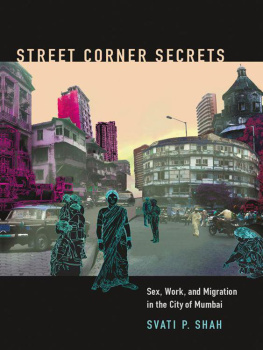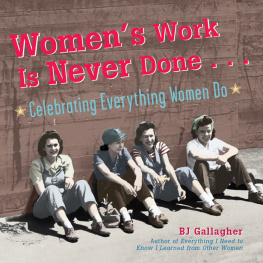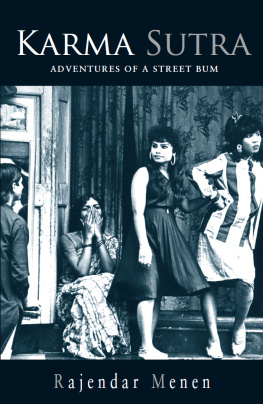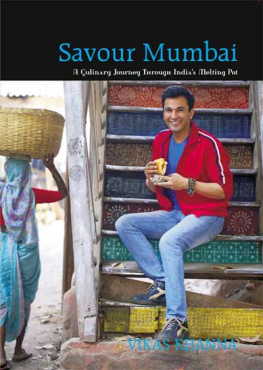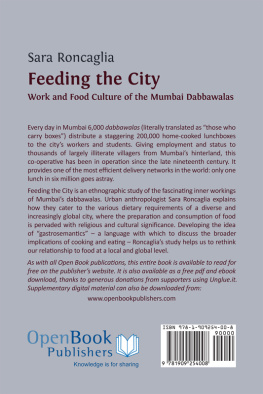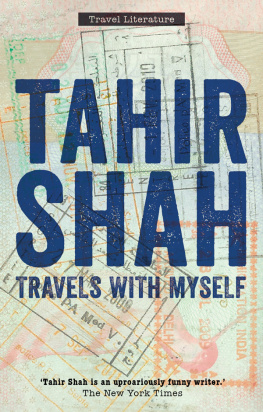NEXT WAVE: New Directions in Women's Studies
A series edited by
Inderpal Grewal ,
Caren Kaplan, and
Robyn Wiegman
STREET CORNER SECRETS
SEX, WORK, AND MIGRATION IN THE CITY OF MUMBAI
SVATI P. SHAH
DUKE UNIVERSITY PRESS
DURHAM AND LONDON
2014
2014 Duke University Press
All rights reserved
Printed in the United States of America on acid-free paper
Designed by Heather Hensley
Typeset in Chaparral Pro by Copperline Book Services, Inc.
Library of Congress Cataloging-in-Publication Data
Shah, Svati Pragna
Street corner secrets : sex, work, and migration in the city of Mumbai / Svati P. Shah.
pages cm(Next wave : new directions in women's studies)
Includes bibliographical references and index.
ISBN 978-0-8223-5689-9 (cloth : alk. paper)
ISBN 978-0-8223-5698-1 (pbk. : alk. paper)
1. ProstitutesIndiaMumbai. 2. ProstitutionIndiaMumbai. 3. Rural-urban migrationIndiaMumbai. 4. WomenEmploymentIndiaMumbai. I. Title. II. Series: Next wave.
HQ240.M86.S43 2014
306.740954'792dc23
2014000765
Cover image by Chitra Ganesh
ISBN-13: 978-0-8223-7651-4 (electronic)
To Sojar Bai,
who talked to me for no good reason ,
to my mother,
Dr. Pragna Nina Shah ,
and to the loving memories of
Dr. Madhukar Kantitlal Shah and
Dr. Sid (Uday) Madhukar Shah
CONTENTS
PREFACE
The project from which this book emerged developed out of a three-month internship in 1996, when, as a master's student in public health, I worked with an international nongovernmental organization ( NGO ) devoted to preventing HIV transmission in the main red-light districts of Mumbai. At that time, NGO s focusing on sex work in India had been operating for less than ten years, spurred into existence by the flow of new international funding streams that had become available to organizations working in Asia, Africa, and Latin America on the heels of the first decade of the AIDS pandemic. Funds for HIV -related work from the European Union, Sweden, Norway, and Canada to India, funneled through then relatively new entities like India's National AIDS Control Organization ( NACO ), provided the infrastructural support for both governmental and nongovernmental efforts to surveil, control, and eventually treat HIV infection and AIDS . Local organizations had emerged and used these funds to provide HIV -related services to sex workers, men who have sex with men, and hijras (people assigned male sex at birth who live as a third sex in the feminine range of the gender spectrum). At the same time, an antitrafficking frameworkcomposed of laws, policies, and theories Rather, the increased significance of prostitution to the idea of India itself was linked with the increased global significance of this antitrafficking framework. To be sure, this framework is far from being hegemonic, or even unequivocally dominant, in managing and understanding prostitution. At the same time, the increase in its significance in the halls of international policy formulation has helped to articulate prostitution as somehow being of particular importance to understandings of women in the Global South. The familiarity of this articulation notwithstanding, the rise in the significance of the conflation of trafficking and prostitution has been convincingly linked to a number of historical developments. These include the ways in which discourses of venereal disease have figured female sex workers as infectious vectors since the nineteenth century. They also include the altered conditions for labor migration brought about in the late 1980s and early 1990s by the adoption of neoliberal economic policies in many parts of the world, the well-rehearsed histories of feminism and pornography debates in the United States, and the confluence of interests between governments and some segments of women's movements in seeking to eliminate illegal and undocumented cross-border migration.
My own engagement with the questions that I raise in this book began before the international discourse on prostitution in India was so profoundly shaped by debates on human trafficking, during a period when the primary critical lens for understanding prostitution was that of HIV/AIDS . This project was initially motivated by an impulse to argue that a theory of sexuality must also be a theory of political economy, and by the idea that this could be argued effectively by examining prostitution through a critique of the infrastructure of HIV/AIDS -related interventions. Having grown up on the immigrant and leftist fringes of the LGBTQ movement in the United States, I found the possibilities of a critical ethnographic project on sex work in India deeply resonant, primarily because the debate on sexual commerce seemed to afford a discursive space to elaborate on the political economy of sexuality in a new way. Questions of economic class and the material conditions necessary for survival had been increasingly abdicated and ignored by mainstream Western LGBTQ movements, writ large; the identitarianism of LGBTQ politics in the United States, while affording some spaces to speak of class, seemed to result in relegating any focus on the political economy of sexuality to the status of an afterthought, at best. At worst, the elision of political economy within discourses of sexuality reproduced the idea that sexual freedom, autonomy, expression, and even sexual subjectivity are all luxury goods, available only to those whose access to food and shelter is secure. This form of the depoliticization of sexuality politics in the United States and elsewhere has attracted much scholarly and activist attention, as well as criticism from the mainstream left, to be sure, but also from the LGBTQ left. In my view, a sustained scholarly engagement with sexual commerce in the Global South would not only offer a way to critique prostitution per se but would also demonstrate the kind of discussion of sexuality, politics, and power that is possible when sexuality is not primarily or exclusively understood as a valence of individuated, innate human expression.
As the call for federally recognized gay marriage has gathered pace in the United States, LGBTQ political discourse has increasingly reified a narrative of origins, in which same-sex erotic desire is seen as individual, hardwired, a state of being, immutable and historically ever-present. In this narrative, sexuality simply exists, without any interference from social forces, and all aspects of sexuality are phenotypically explicable. As my own research project in India gained momentum, it became apparent that this narrative form was also in effect in discourses of sexual commerce. As the project grew and shifted, I observed that, over time, women and girls selling sexual services were increasingly becoming subject to a discourse in which prostitution is a state of being from which they must simply be rescued; in this discursive trajectory, sexual commerce was never figured as a livelihood strategy that is part of a complex set of negotiations for daily survival.
As identitarianism marginalized questions of political economy with respect to LGBTQ politics, so too is the conflation of selling sexual services with human trafficking deprioritizing and, in some spaces, disappearing the question of survival with respect to sexual commerce. Both ways of framing these respective tropes and issues have focused on the idea of origins, on the moment in which an individual subject knew, came out , was forced , was called into being, within a fixed subjective matrix. In a sense, this book is part of this other, related debate as well, on the consequences of framing sexuality in the terms of identitarianism, and within the politics of choice and privilege.
Ultimately, this book is neither a critique of identitarianism per se nor a direct rebuttal of a particular antitrafficking framework. Rather, it is an attempt to situate, within the frame of sexuality, questions and critiques pertaining to sexual commerce that can be mobilized neither under the sign of identitarianism, nor within the rubric of human trafficking, nor even under a unitary notion of what the terms prostitution or sex work may signify. From its early incarnation as a project dedicated to migrant sex workers, this study became an ethnography of the layered negotiations for economic survival among three groups of migrant women in Mumbai, who solicit sexual commerce as one of several other forms of day wage labor. The result is a book that begins with the question of sex work and ends with the question of the city, and the ways in which migrant workers negotiate survival within it.
Next page
